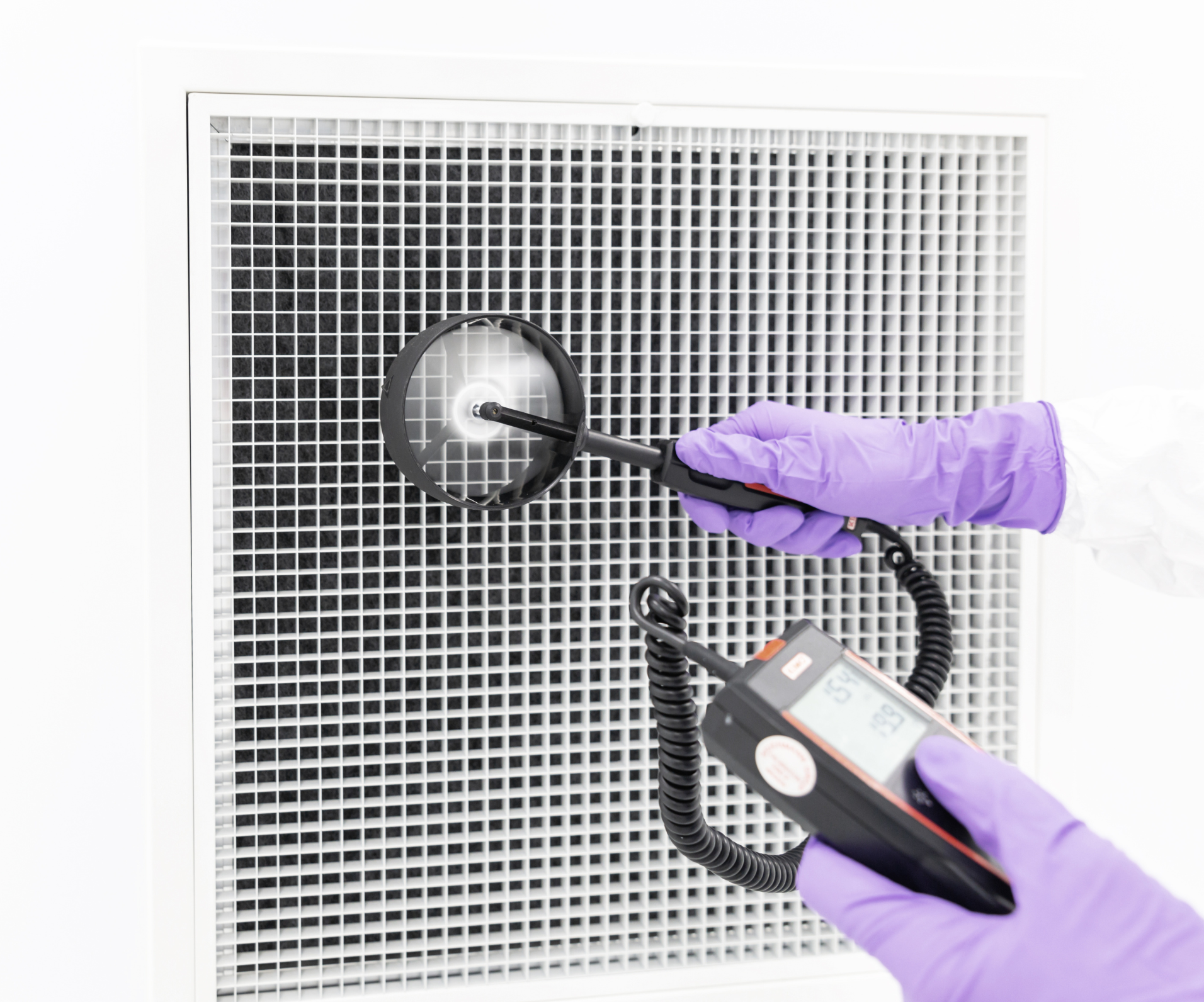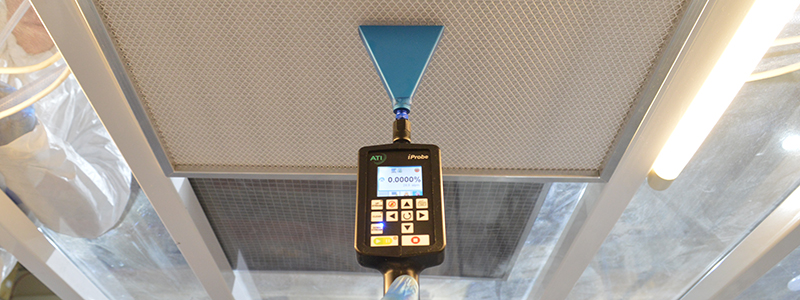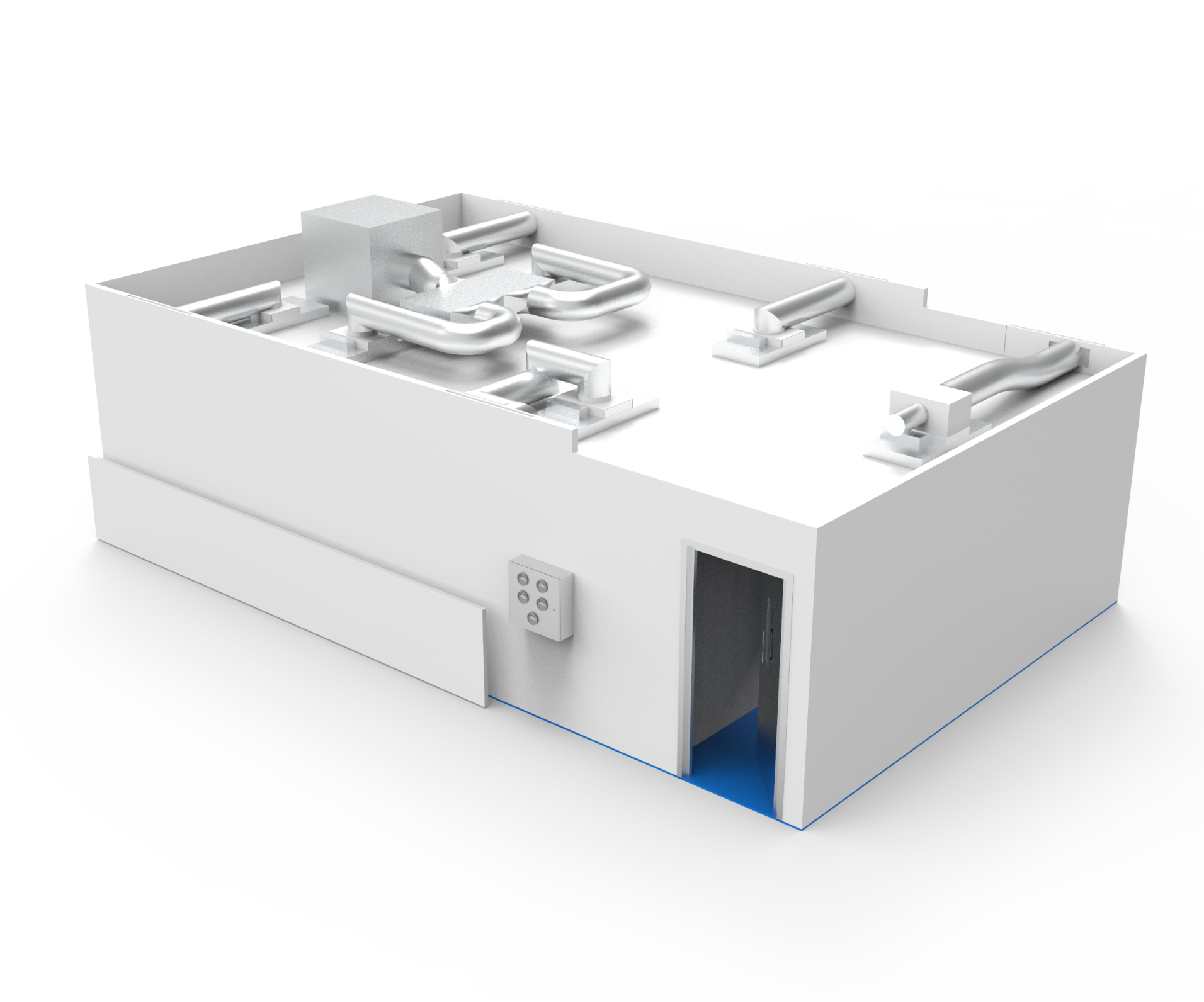What is DOP (Dispersed Oil Particulate) testing?
DOP testing is also known as:
- Filter integrity testing
- Installed filter leakage and integrity testing
- Installed filter system leakage test


DOP testing is the process that verifies HEPA (High Efficiency Particulate Air) or ULPA (Ultra Low Penetration Air) filters are properly installed, that there is absence of bypass leakage of the filter installation, and that the filters are free of leaks and defects (small holes and other damage in the filter medium, frame, seal and leaks in the filter bank framework).
The test is performed in the as-built or at-rest state, and is undertaken when commissioning new cleanrooms and clean zones e.g. laminar flow cabinet (LFC), when existing installations require requalification or after filters have been replaced.
Testing is performed by introducing an aerosol challenge upstream of the filters, then scanning downstream of the filters and support frame, or sampling in a downstream duct. Using an aerosol generator, oil is dispersed into the upstream flow of the filter media, while the number of particles in the downstream flow is measured using a photometer. During the test, the whole filter face is tested to ensure that any damage or leak will be detected and located.
For filters with an integral efficiency of 99.95% or greater, the acceptance criteria described in ISO 14644-3:2019 states any leak detected in excess of 0.01% of the upstream mass concentration is deemed to exceed the maximum allowable penetration.
It is important to note that DOP testing does not determine the efficiency of the filter medium, this testing is performed during the manufacture of HEPA and ULPA filters.


READY TO START A NEW PROJECT?
Our design and build specialists have experience working with customers in all kinds of industries on a global scale, achieving great results time and time again. We’d love to work with you as well!
REQUEST A QUOTE